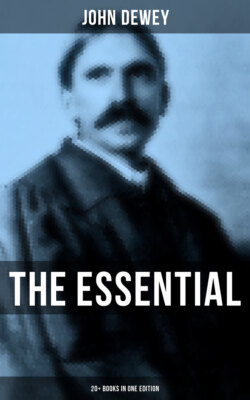Читать книгу The Essential John Dewey: 20+ Books in One Edition - Джон Дьюи - Страница 10
На сайте Литреса книга снята с продажи.
FOOTNOTES:
Оглавление1. Bernhardi, "Germany and the Next War," pp. 73-74. Italics not in the original text.
2. Bernhardi, "Germany and the Next War," pp. 63-64.
3. Eucken, "The Meaning and Value of Life," translated by Gibson, p. 104.
4. He refers to the followers of Schelling, who as matter of fact had little vogue. But his words may not unjustly be transferred to the naturalistic schools, which have since affected German thought.
5. Chamberlain, for example, holds that Jesus must have been of Teutonic birth—a perfect logical conclusion from the received philosophy of the State and religion. Quite aware that there is much Slav blood in northern Germany and Romance blood in southern Germany, he explains that while with other peoples crossing produces a mongrel race, the potency of the German blood is such that cross-breeding strengthens it. While at one time he explains the historic strength of the Jew on the ground that he has kept his race pure, another place he allows his indignation at the Jews to lead him to include them among the most mongrel of all peoples. To one thing he remains consistent: By the very essence of race, the Semites represent a metaphysical principle inherently hostile to the grand Germanic principle. It perhaps seems absurd to dignify the vagaries of this garrulous writer, but according to all report the volumes in which such expressions occur, "The Foundations of the Nineteenth Century," has had august approval and much vogue.
6. Marx said of the historic schools of politics, law and economics that to them, as Jehovah to Moses on Mt. Sinai, the divine showed but its posterior side.
